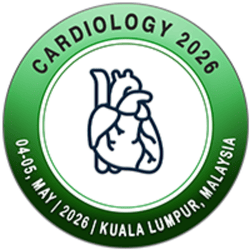
Olga Shevaldova
Federal State Budgetary Scientific Institution , Russian FederationPresentation Title:
Effectiveness of Comprehensive Cardiac Rehabilitation in Adolescents with Congenital Heart Disease: Analysis of Systemic Relationships
Abstract
Aim:
To evaluate changes in systemic relationships between physiological, cognitive, and emotional parameters in adolescents after coarctation repair following comprehensive cardiac rehabilitation.
Methods:
Study included 55 adolescents (male=33) aged 12-17 years (median 15) in long-term postoperative period after radical coarctation repair. Rehabilitation at AN Bakulev Scientific Center included exercise therapy, physiotherapy, psychological correction, and cardiorespiratory biofeedback training (14 days). Pre/post-rehabilitation assessments: 5-minute resting ECG, respiration, photoplethysmography with heart rate variability analysis (Kubios HRV Standard 3.5.0.), cognitive testing (Schulte grid, digit span), psychological evaluation (HADS, well-being scales).
Results:
Rehabilitation yielded significant HRV improvements: increased SDNN from 27.25 to 32.00 ms (p=0.033), VLF power from 41.96 to 60.54 ms² (p=0.008), LF power from 371.77 to 471.38 ms² (p=0.011), total power from 750.06 to 858.72 ms² (p=0.025), decreased approximate entropy from 1.01 to 0.72 (p<0.001). Psychoemotional parameters showed reduced anxiety from 6 to 5 points (p<0.001), depression from 4 to 2 points (p<0.001), improved well-being from 49.5 to 53.5 points (p=0.002). Cognitive functions demonstrated reduced Schulte test completion time: black numbers from 63.48 to 57.37 s (p=0.031), black-red stage from 243.59 to 223.88 s (p<0.001). Correlation analysis revealed fundamental reorganization of systemic relationships. Pre-rehabilitation, attention volume showed multiple negative correlations with parasympathetic activity: PNS index (r=-0.857, p<0.001), RMSSD (r=-0.857, p<0.001), pNN50 (r=-0.846, p<0.001), HF components (r=-0.784, p<0.001), which completely disappeared post-intervention. Attention distribution lost negative correlations with SDNN (r=-0.451, p<0.001), LF power (r=-0.451, p<0.001), total power (r=-0.786, p<0.001). Schulte test completion time showed weakened negative correlations with PNS index from r=-0.423 (p<0.01) to r=-0.299 (p<0.05). Anxiety lost positive correlations with SNS index (r=0.266, p<0.05) and stress index (r=0.284, p<0.05). Post-rehabilitation, new adaptive correlations emerged: mood with well-being (r=0.550, p<0.001) and activity (r=0.625, p<0.001).
Conclusion:
Comprehensive cardiac rehabilitation with biofeedback training resulted in fundamental reorganization characterized by elimination of pathological autonomic-cognitive correlations and formation of new adaptive interaction patterns between physiological, cognitive, and emotional functions in adolescents with congenital heart disease
Biography
TBA


